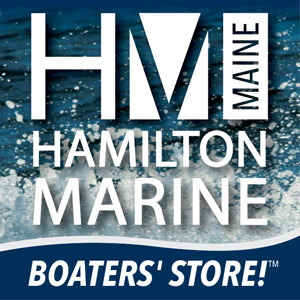By Sheila Dassatt
Last month I wrote my article about the blueberry fields and the threat of the solar panels that are popping up in these beautiful areas. This also has a connection with the threat that the fishermen have with the windmill projects. Now I’d like to discuss the survival of the fittest on our working coast of Maine.
I do a lot of reading, whether it is through social media or the marine newspapers, local newspapers or magazines of the same nature. What I am reading and witnessing is the threat to Coastal Maine and our working waterfronts.
I never thought that I’d see this happening in my lifetime, but unfortunately, it is and I do care. You see, when I was growing up, life was easier in many ways. We were all on the “same plain” when it came to the working waterfront. The houses were built on the slope of the hills for a reason. This is the same reason that houses were built on the waterfront with access to their own private docks and mooring spaces. The houses back then didn’t have all of the conveniences of today, so they had bay windows, porches and widows watches built into the homes. If you look at the structure of Stonington as an example, all of the houses in town are built on that familiar slope that overlooks the harbor. This was so they could look out and see if their “Captain” was coming in from haul for the day. This also went for seiners, lobster smacks, granite carriers and those that made their living on the water. My grandmother had a rocking chair sitting in the bay window of their sitting room. She would sit there and watch out of the window to see if my grandfather and sons were coming in for the day. They didn’t have base radios or conveniences to call and rest their minds at ease. I remember my Mother talking to my Dad on the ship to shore radio when he was on the lobster smacks. We would listen to them talking on the radio. Every time they finished a sentence, they said “over.” It was quite something to listen to for us kids! This was our accepted way of life.
Now, moving forward to this date and time, especially in most recent years since Covid, ever so gradually, these homes along the waterfront have been sold and bought up by folks that thought they would make good retirement homes or seasonal rentals. The days of the fishermen having access to their own way of life is all but hanging on to a thread.
I do not want to repeat what I have said in previous articles, but I do have a little different twist. Upon my reading various articles, I am seeing that some coastal towns have actually had to establish ordinances to protect their working waterfront fishing activity from folks that have issues with noise and working activity early in the morning. I found it hard to believe until I have seen signs of it myself. Places that are beautiful and welcoming for all to see now have signs that say “no parking,” “private property, keep out,” and “no trespassing.” I have seen this not just in Stonington, but where we used to live in Belfast, when they started putting up fences with codes on them for private access to the docks and floats. This is all in the name of progress……for some.
Most boat shops on the waterfront were never locked and if you needed a tool for your boat, you could just go and help yourself as long as you brought it back. This way of life was universal along the coast. This has changed drastically, and it is sad to see. What we are seeing is a division of the working class and the people of affluence. What has happened and why did it all change?
Now, we have a big housing crises in our coastal communities. The locals that work on the water cannot afford the houses on the waterfront and when they are sold, they are way out of their price category. What are the young families going to do? Wait for these housing developments to be built so they can be located in a different neighborhood? There is something wrong with this picture, I’m sorry. This also creates a separation of our society which should not be happening. I have read local articles that say we should make our community more welcoming to our summer visitors. There’s such a thing as meeting folks at least halfway, I agree. But for these working waterfront communities, summertime is our busy time for hauling our traps, right into the fall and early winter. We are not on vacation in the summer, we are working our hardest. I saw a bumper sticker on a truck that said “I’m not on vacation” and I hope that most folks get the message.
Yes, enjoy the beautiful coast, the great seafood, ice cream and such, but we need to have a mutual respect for each other’s space. Don’t most of our visitors enjoy a good lobster roll or shore side dinner? Then let us do what we know and do the best and to be able to provide this primo seafood for our visitors.
Times are changing and we can’t do much about that, but we do want to maintain our working waterfronts and continue to fish traditionally without having to struggle any more than we already are to survive. Let’s at least meet somewhere in the middle!


